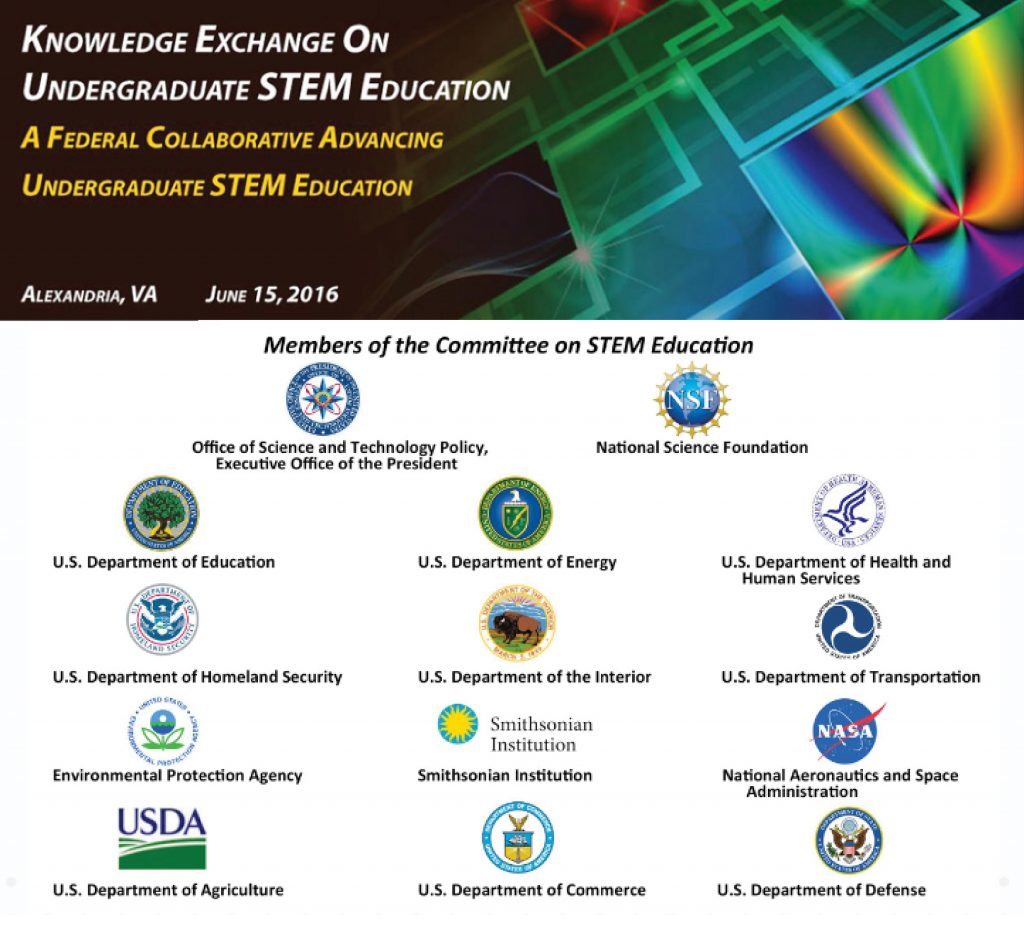-
June 22, 2016
PacTrans Staff Attends Knowledge Exchange on Undergraduate STEM Education
Last week Wednesday, June 15, 2016, PacTrans representative, Cole Kopca, attended a STEM Knowledge Exchange is Alexandra, VA. This knowledge exchange was an effort to broaden the conversation and bring all relevant parties to the table with regard to STEM education and workforce development.
In response to the America COMPETES Reauthorization Act of 2010, the National Science and Technology Council (NSTC) established the Committee on Science, Technology, Engineering, and Mathematics (STEM) Education (CoSTEM). In order to advise NSTC on efforts of the federal government toward the chartered goals of CoSTEM’s 5-year strategic plan, the Subcommittee on Federal Coordination in STEM Education (FC-STEM) was established, along with five interagency working groups.
Through a series of literature reviews, the Undergraduate STEM Education group has identified four challenge areas within STEM Education, which map to four key strategic objectives:
- Identify and broaden implementation of evidence-based instructional practices and innovations to improve undergraduate learning and retention in STEM and develop a national architecture to improve empirical understanding of how these changes relate to key student outcomes;
- Improve support of STEM education at 2-year colleges and create bridges between 2- and 4- year postsecondary institutions;
- Support and incentivize the development of university-industry partnerships, and partnerships with federally supported entities, to provide relevant and authentic STEM learning and research experiences for undergraduate students, particularly in their first two years; and
- Address the problem of excessively high failure rates in introductory mathematics courses at the undergraduate level to open pathways to more advanced STEM courses.
Within the breakout session titled “Research Experiences Engineering and Technology and 4-year Institutions,” a gathering of representatives from University Transportation Centers from around the country heard from, and shared with, one another and representatives from other national institutes. Subjects discussed included the opportunities and challenges of mentoring undergraduate students, as well as creative ways that UTCs can engage undergraduate students in research.
PacTrans would like to thank those who put the knowledge exchange on and invited us to participate. A lot of valuable knowledge was shared.



